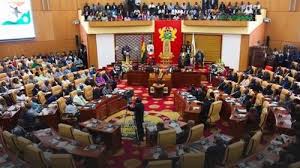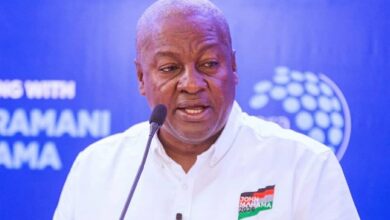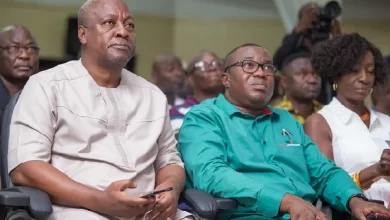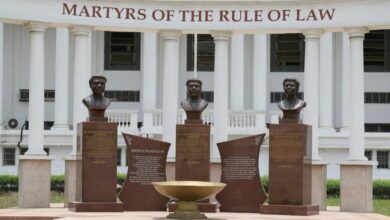
The Dynamic Youth Movement of Ghana (DYMOG) has called for the amendment of Article 62 (b) of the 1992 Constitution and other relevant Constitutional provisions to ensure the reduction in age of persons who qualify to be President of the country to at least 35 years as has been done by Nigeria.
The DYMOG proposed the amendment of the stipulated Article on the occasion of the celebration of the 2020 International Youth day which falls on Wednesday, 12 August.
International Youth Day (IYD) which is observed each year on 12 August is a day set aside by the United Nations (UN) to draw attention to youth centered legal and cultural issues.
This year’s celebration is being marked on the theme: “Youth Engagement for Global Action.”
This year’s theme seeks to “highlight the ways in which the engagement of young people at the local, national and global levels can be enhanced, speaks to the core deficit of youth participation in the governance architecture.”
Per Article 62 of the 1992 Constitution, A person shall not be qualified for election as the President of Ghana unless -(a) he is a citizen of Ghana by birth;(b) he has attained the age of forty years.
In a statement signed by its Director of Communications, Daniel Blaise Annan Junior to commemorate this year’s IYD, the DYMOG said it “celebrates the relentless and energetic spirit of the Ghanaian youth. The contribution to the political, cultural, economic and social development of Ghana by the Ghanaian youth is manifestly seen.”
The DYMOG noted that: “According to the United Nations Department of Economic and Social Affairs, about 70% of the continent’s population is under the age of 30yrs. Africa’s youth bulge is leading to an emerging crisis because, the level of engagement in politics remains lower than that of the older generations.”
It further made reference to the recent afrobarometer research which shows that despite the appetite the youth have for politics, there is, inertia to convert it, into action during elections.
Also, the 2016 report by the Inter – Parliamentary union (IPU) on youth participation in national Parliaments, people under the age 30 make up only 2 percent of parliamentarians around the World.
The DYMOG also pointed out that: “The 2018 IPU report on youth participation in national Parliaments, 15.5 percent of the World’s MP’s are under age 40 up from 14.2 percent in 2016, an increase of 1.3 percentage points. 28.1 percent of the World MPs, are under age 45 up from 26 percent in 2016, a 2.1 percentage point increase, the global proportion of MPs under age 30 increased by only 0.3 percentage points since 2016 (from 1.9 percent to 2.2 percent). 2. 2 percent of the World’s MPs, are under age 30- up from 1.9 percent in 2016, a slight increase of 0.3 percentage points.”
The DYMOG is, therefore, proposing “an amendment to Article 62 (b) and other relevant constitutional provisions thereof, to reduce the age limit to at least 35 years to qualify to run for President as in the case of Nigeria where the, #NotTooYoungToRunCampaign with over 80 youth civil society organisations were at the forefront which received massive endorsement by the legislature and signed into law by President Buhari on May, 31 2018.”
According to the movement, it is on the “cusp of announcing a campaign to that effect in the ensuing months” and urged political parties to “commit to a certain significant percentage of appointment of the youth, however, we admit that this should be informed by policy acknowledging that the number of youthful appointees isn’t coterminous to youthful representation (That is, the mere quantum jump in numbers of youthful appointees, doesn’t necessarily mean adequate representation) unless through a tailored effort by policy or constitutional provisions to ameliorate the challenges confronting the Ghanaian youth.”
It added that: “The policy must lucidly give the indicia for selection of the young people to various Government agencies and to establish a potent nexus between the number of youth appointees and youth representation.
The DYMOG thus called on “all stakeholders, Civil Society Organisations, the Government of Ghana, media, to join hands in this pursuit and strengthen” the country’s nascent democracy.




